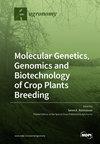Total-Factor Energy Efficiency and Its Driving Factors in China’s Agricultural Sector: An Empirical Analysis of the Regional Differences
IF 3.3
2区 农林科学
Q1 AGRONOMY
引用次数: 0
Abstract
Improving agricultural energy efficiency is essential in reducing energy consumption and achieving agricultural sustainable development. This paper aims to measure the agricultural total-factor energy efficiency in China rather than the partial-factor energy efficiency while taking full account of regional heterogeneity and to investigate the driving factors of agricultural total-factor energy efficiency. The empirical results showed that the average value of agricultural total-factor energy efficiency is 0.814 in China, and the technological gap ratio is 0.853. The regional difference in agricultural total-factor energy efficiency was quite obvious. Higher agricultural energy inputs are associated with higher agricultural total-factor productivity. The total value of potential agricultural energy savings in 30 provinces of China reached 1704.41 billion tons of standard coal. In terms of the absolute amount of agricultural energy saving, the amount was largest in the low-energy-input area, which was 113.87 million tons of standard coal, accounting for 66.81% of the total potential saving amount. Furthermore, we used the Tobit model to analyze the influencing factors of agricultural total-factor energy efficiency. We found that the proportion of agriculture to GDP has a positive impact on agricultural total-factor energy efficiency, while the per capita income of farmers, fiscal support for agriculture, the illiteracy rate of farmers, agricultural labor input, and agricultural capital stock have a negative impact on agricultural total-factor energy efficiency. Finally, we proposed policy implications in terms of agricultural technological progress, agricultural infrastructure, technical training, etc.中国农业部门全要素能源效率及其驱动因素:区域差异的实证分析
提高农业能源效率对于减少能源消耗和实现农业可持续发展至关重要。本文旨在在充分考虑区域异质性的情况下,衡量中国农业全要素能源效率而非部分要素能源效率,并研究农业全要素能量效率的驱动因素。实证结果表明,我国农业全要素能源效率平均值为0.814,技术差距比为0.853。农业全要素能源效率的区域差异十分明显。农业能源投入越高,农业全要素生产率越高。全国30个省份农业节能潜力总量达17044.1亿吨标准煤。从农业节能的绝对量来看,低能源投入区的节能量最大,为11387万吨标准煤,占潜在节能总量的66.81%。此外,我们还利用Tobit模型分析了农业全要素能源效率的影响因素。我们发现,农业占GDP的比例对农业全要素能效有正向影响,而农民人均收入、财政支农、农民文盲率、农业劳动力投入和农业资本存量对农业全因素能效有负向影响。最后,我们从农业技术进步、农业基础设施、技术培训等方面提出了政策启示。
本文章由计算机程序翻译,如有差异,请以英文原文为准。
求助全文
约1分钟内获得全文
求助全文
来源期刊

Agronomy-Basel
Agricultural and Biological Sciences-Agronomy and Crop Science
CiteScore
6.20
自引率
13.50%
发文量
2665
审稿时长
20.32 days
期刊介绍:
Agronomy (ISSN 2073-4395) is an international and cross-disciplinary scholarly journal on agronomy and agroecology. It publishes reviews, regular research papers, communications and short notes, and there is no restriction on the length of the papers. Our aim is to encourage scientists to publish their experimental and theoretical research in as much detail as possible. Full experimental and/or methodical details must be provided for research articles.
 求助内容:
求助内容: 应助结果提醒方式:
应助结果提醒方式:


